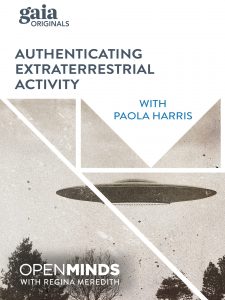Chris Mellon’s Article addressing the esteemed Members of the Japanese Parliament for establishing a caucus dedicated to UAPs.
Inaugural Address to the Japanese UAP Caucus
June 5th, 2024
Esteemed Members of the Japanese Parliament,
I want to first of all express my profound respect and admiration for the remarkable step you have taken by establishing a caucus dedicated to Unidentified Anomalous Phenomena, commonly known as ‘UAP.’ This initiative marks an important and admirable commitment to transparency, national security, and scientific inquiry.
For decades, the phenomena we now refer to as UAP has captured the imagination and sparked the curiosity of individuals around the globe, notwithstanding efforts by many to belittle the issue. These UAP occurrences have been the subject of countless discussions, investigations, and speculations. The National Aeronautics and Space Administration quite rightly referred to UAP as “One of the great mysteries of all time.”
As elected officials, I know it takes political courage to confront the stigma that has for far too long surrounded this UAP issue. Thankfully, the Japanese and American people are both fortunate to have legislators willing to put national security and science ahead of narrow political considerations.
If there was ever any doubt, we now know UAP is a global issue, one that transcends national borders and demands international cooperation. As we seek to understand UAP it is best to work together, pooling our resources and expertise for the sake of both national security and scientific progress, as we have done in so many other areas. Collaborative efforts will enable us to address potential threats more effectively and perhaps uncover truths that lie beyond our current understanding.
We also know that from a national security standpoint the importance of identifying and monitoring unmanned aerial systems cannot be overstated. The immense impact of unmanned vehicles in the ongoing conflict in Ukraine is on display daily in Ukraine. By staying vigilant and informed, we can enhance national security and leverage these technologies for positive outcomes.
As you launch this new caucus, I would like to share some observations from my own experiences that I hope will underscore the importance of the work you are undertaking.
Observations and Lessons Learned
Notwithstanding the sophistication and advancement of human science and technology, the survival of modern nation states is still a fundamentally Darwinian process. The key to survival remains successfully adapting to changes in the world around us. This is more challenging than ever because the world around us is changing at an unprecedented and accelerating rate.
It is therefore both ironic and unfortunate that one of the notable attributes of modern bureaucracies, especially government bureaucracies, is their lack of transparency and instinctive resistance to change – unless of course that change involves an expansion of their authority or resources. This is why it is more important than ever for legislators in modern democracies to vigorously monitor and challenge the policies, priorities, and budgets of government agencies, especially those entrusted with national security responsibilities. This is not micromanagement; it is akin to an effective Board of Directors focusing on strategy and requirements.
I learned this important lesson early in my career while working for Senator William S. Cohen on the Senate Armed Services and Intelligence Committees. I was stunned to repeatedly see desperately needed reforms fiercely opposed by the Department of Defense, the military services, the Joint Chiefs of Staff (JCS), and often even the White House. I’ll provide some examples to help illustrate this point.
A major problem facing the US Department of Defense after WWII was the excessive independence of the military services. This produced wasteful inter-service rivalries and a dangerous inability to properly equip and train forces for joint operations. President Eisenhower proposed changes in 1957 to fix this by enhancing the authorities of the combatant commanders and the Chairman of the Joint Chiefs of Staff. However, these proposals were defeated in Congress after military leaders leaked false claims that the proposed changes would undermine civilian control of the military.
America continued to struggle with integrating its military forces effectively, evident in failed operations like the Iranian hostage rescue mission and the Beirut Marine barracks bombing. Then in the Grenada operation we learned Army and Navy radios were not interoperable and that Special Operations Forces (SOF) were not properly integrated into the operation and suffered excessive casualties as a result. These systemic problems stemmed from an inability to properly train and equip forces for effective joint operations.
While staffing Senator William S. Cohen, I was astounded by the fierce resistance of DoD and the Joint Chiefs to the eminently sensible and important reforms proposed by Senators Nunn and Goldwater. Thankfully, a veto-proof majority in Congress passed this critical legislation in 1986. The benefits can be seen by the stark contrast between the mix-ups and disasters of the operations in Iran, Beirut, and Grenada versus the stunning display of synchronized joint force displayed by the US and its allies during Desert Storm.
This was the only first instance of resistance to badly needed reforms that I saw during my stint working for Senate Armed Services and Intelligence Committees.
- I also saw the Air Force strongly resist investment in drones and unmanned aircraft, which as we can plainly see today in Ukraine are absolutely fundamental to modern combat operations. We are fortunate Congress directed the establishment of a new organization, the Defense Airborne Reconnaissance Office to ensure proper leadership and funding for the development of drones and large unmanned vehicles.
- I staffed a bill of Senator Cohen’s to establish the US Special Operations Command, and of course that was also implacably opposed by the Pentagon despite the merits. Once again, Congress took action and US Special Operations Capabilities are far better as a result.
- As the budget monitor for the National Security Agency (NSA) at the Senate Intelligence Committee in the 1990s, I found the senior managers unwilling to redeploy resources from existing programs to begin adapting to the explosive growth of the internet. Again, it was Congress that initially took action to rectify this shortcoming.
- I saw the Air Force repeatedly reprogram funds earmarked by Congress to purchase desperately needed airlift for Special Operations Forces (SOF), because the Air Force preferred to use those funds to add to their existing inventory of 550 F-16s rather than support the mission of another service.
- Sometimes, as was the case with the Special Operations Command, there was even resistance after Congress had passed legislation requiring change. In the case of the Special Operations Command, resistance to implementation was so fierce Congress had to pass supplemental legislation the following year.
None of these critical problems would have been addressed had it not been for vigorous oversight by members of Congress. Today there is widespread acknowledgment at the Pentagon that these changes were for the better. I could provide many more examples, but hopefully these are sufficient to underscore why it is so important today for members of the legislatures in democratic nations to be assertive in their role as the nation’s Board of Directors. Too often, left to their own devices, these bureaucracies will fail to adapt to changing threats and requirements. In that regard, I am pleased to report that earlier today the Senate Intelligence introduced new language to strengthen UAP oversight in its annual authorization bill. That seems an auspicious development for the inaugural meeting of this new caucus.
The UAP issue in the US followed this familiar pattern. I spent months working with Pentagon official Lue Elizondo trying to get senior DoD officials to engage on the USP issue, but it soon became clear nothing would change without Congressional interest and direction. Thankfully, after we arranged for Navy aviators to share their first-hand UAP experiences with Congress, the issue gained traction on Capitol Hill. One of the Senators briefed by Navy aviators was Bill Nelson, who afterwards became Director of NASA. I’m confident these briefings are the reason he became the first NASA Director to recognize the legitimacy of UAP.
Following these briefings, I recommended Congress seek a report on UAP incidents from DoD and the Intelligence Community. Although the Air Force claimed it didn’t have any pertinent reports prior to 2020, the report still identified 144 military UAP encounters since 2004. In doing so, the report validated the reality of UAP and stimulated further congressional inquiry, eventually leading to the establishment of a new organization, the All-Domain Anomaly Resolution Office (AARO) dedicated to compiling, analyzing and investigating UAP reports. Now that members of Congress are actively engaged, and UAP reporting guidance implemented, we are seeing an explosion of UAP reports. From 2004-2021 less than 10 UAP reports per year were being received. Now, hundreds of military UAP reports are being received each year. It will be fascinating to watch this process in the years ahead to see what lessons are learned and discoveries made.
Conclusion
What I have tried to illustrate today is the vital role of elected officials in advancing national security. Due to the unprecedented rate at which the security environment is changing, it has never been more important for national legislators to vigorously examine, and when appropriate, challenge the status quo. As these examples demonstrate, left to their own devices, our vital but massive security organizations will often fail to reveal important information or implement critical reforms. Were it not for action by Congress, the public would still have no idea how many near mid-air collisions with UAP have occurred, how often UAP are being reported, or the frequency and extent of UAP reports. UAP today would still be violating military airspace with impunity; pilots and radar operators would still fear reporting these events; and there would be no office to receive and analyze UAP data or develop new collection strategies. This is why I feel so strongly about the importance of what you are doing and why I welcomed this opportunity to applaud and encourage your efforts.
The establishment of the UAP Caucus exemplifies Japan’s commitment to progress, innovation, and the advancement of human understanding. It confronts the unknown with an open mind and a critical eye. The potential national security and scientific ramifications are profound and of inestimable importance.
In conclusion, I applaud the intellectual integrity you are demonstrating by placing science and national security above outdated stigmas. Congratulations to all the members of this distinguished caucus for your visionary leadership. May your efforts yield fruitful discoveries and pave the way for a future where knowledge and curiosity, rather than fear, guide our progress.
Arigatou gozaimasu














